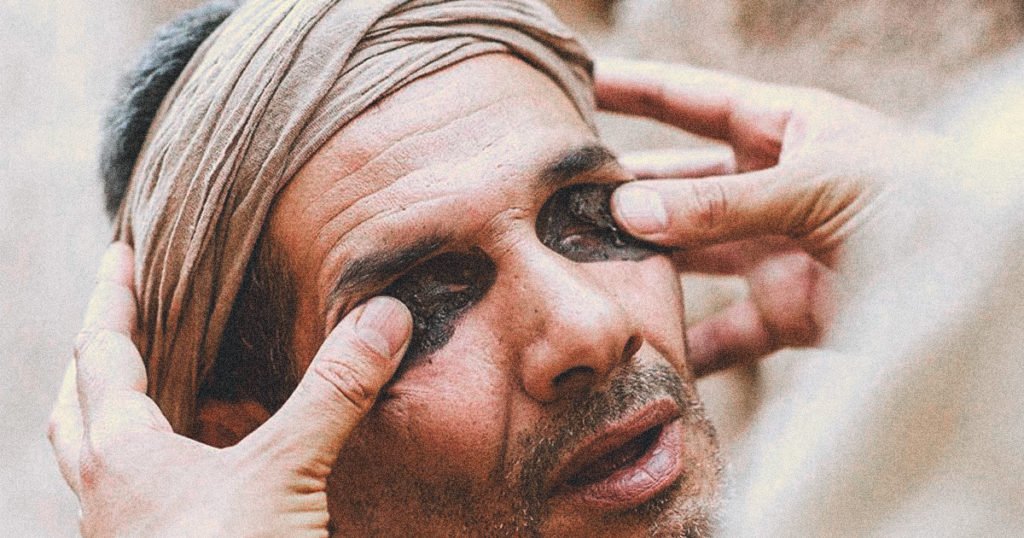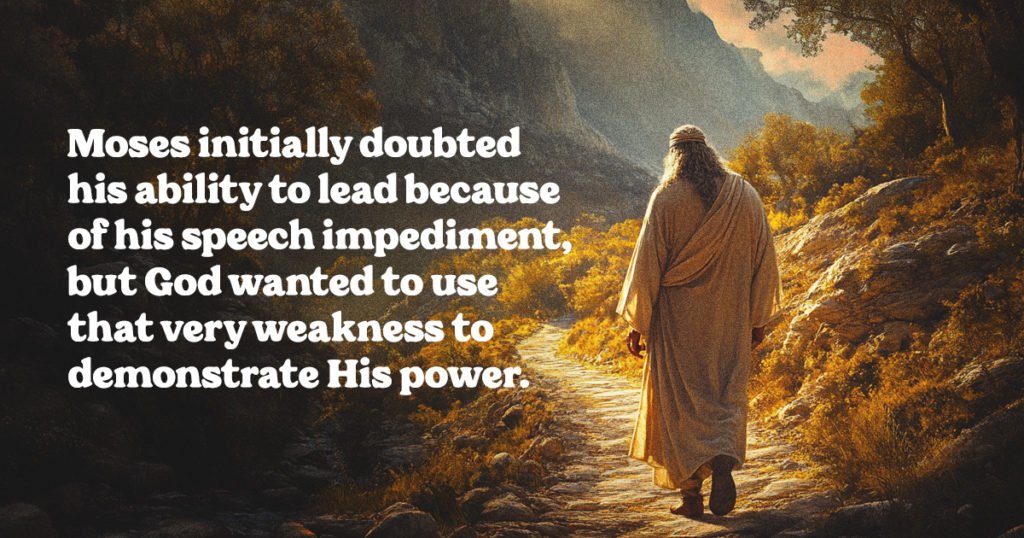

The world has always had a negative view of disability. Even the disciples of Jesus believed that disability was a punishment from God. Jesus flips the narrative on disability in John 9:1-3 correcting them.
“As Jesus went along, he saw a man who was blind. He had been blind since he was born. Jesus’ disciples asked him, “Rabbi, who sinned? Was this man born blind because he sinned? Or did his parents sin?” It isn’t because this man sinned,” said Jesus. “It isn’t because his parents sinned. He was born blind so that God’s power could be shown by what’s going to happen.”

Disability in our lives provides divine opportunities for God to show His power, love, and compassion. Yet too often the negative narratives that exist cause people to be insecure about their disabilities. This insecurity robs both individuals and God from life-changing opportunities. Opportunities that could have massive implications on potential Kingdom impact.
Let’s look at how this played out in the scriptures.
Consider the story of Moses and how it might have taken on a different shape if he had not initially resisted God’s call to speak on His behalf due to his speech impediment. In the Book of Exodus, Moses expresses reluctance to lead the Israelites out of Egypt because he claims to be “slow of speech and tongue” (Exodus 4:10). In response, God provides Aaron, Moses’ brother, as his spokesman. If Moses had accepted God’s initial invitation to speak directly despite his insecurities, several things could have unfolded differently.
It’s fascinating to imagine how the entire story of Moses might have changed if he had not denied God the opportunity to speak directly through him and his speech impediment. Here are some possible ways the events might have unfolded differently:
1. Would the 10 Plagues in Egypt be necessary?
The 10 plagues were central to demonstrating God’s power over Pharaoh and the Egyptian gods. Even if Moses had spoken directly, the plagues likely still would have been necessary to break Pharaoh’s hardened heart. The plagues were part of God’s larger plan to showcase His supremacy and compel Pharaoh to release the Israelites. However, if Moses had fully embraced his role, the confrontations with the Pharaoh might have been more direct, perhaps unfolding faster and with less hesitation.
2. Would the Israelites have gotten lost in the desert for 40 years?
The 40 years of wandering were a direct result of the Israelites’ lack of faith when they first reached the borders of the Promised Land (Numbers 13-14). It wasn’t due to Moses’ speech impediment or reluctance. However, if Moses had been more confident from the outset and had spoken directly to the people without relying on Aaron, perhaps his leadership might have inspired stronger faith and trust among the Israelites. They may have been more willing to follow God’s commands, preventing the rebellion and lack of faith that led to the 40-year punishment.
3. Would Moses have made it to the Promised Land?
Moses’ exclusion from the Promised Land was due to a specific act of disobedience when he struck the rock to bring forth water instead of speaking to it, as God commanded (Numbers 20:1-12). His insecurities about his disability continued to plague him and ultimately stopped him from entering the Promised Land. This incident reflected Moses’ frustration and perhaps an ongoing struggle with his sense of inadequacy or self-doubt. If Moses had accepted God’s call to speak through him from the beginning, it’s possible his faith and trust in God would have deepened over time, and perhaps he wouldn’t have faltered in this critical moment. If so, Moses might have entered the Promised Land.

In Summary:
If Moses had accepted God’s call to speak directly through his speech impediment, the entire story could have taken on a different trajectory. While the 10 plagues might still have been necessary, the Israelites’ journey and Moses’ leadership might have been characterized by greater confidence, faith, and divine empowerment. The 40 years of wandering and Moses’ exclusion from the Promised Land may have been averted, with a stronger, more unified relationship between Moses, the Israelites, and God. The story would then serve as an even more powerful example of how God can work through human weakness to fulfill His plans.
Personal Application:
We can learn from Moses’ mistakes by embracing our insecurities and trusting that God can work through our perceived weaknesses. Moses initially doubted his ability to lead because of his speech impediment, but God wanted to use that very weakness to demonstrate His power. By surrendering our insecurities and allowing God to work through our disabilities, we can experience the fullness of God’s plans for our lives, rather than letting fear or self-doubt limit what He can accomplish through us. Will you trust God with your insecurities?


